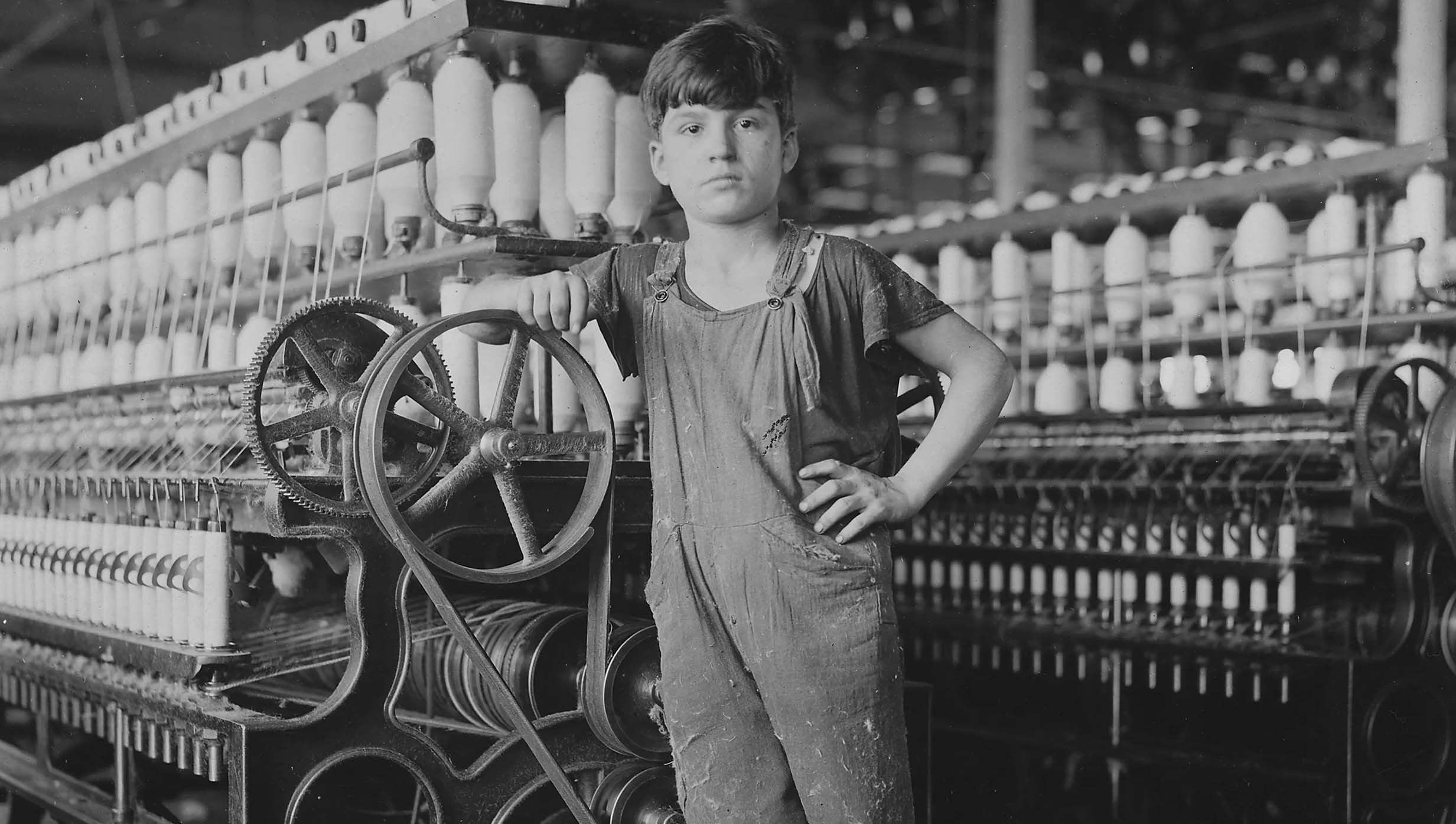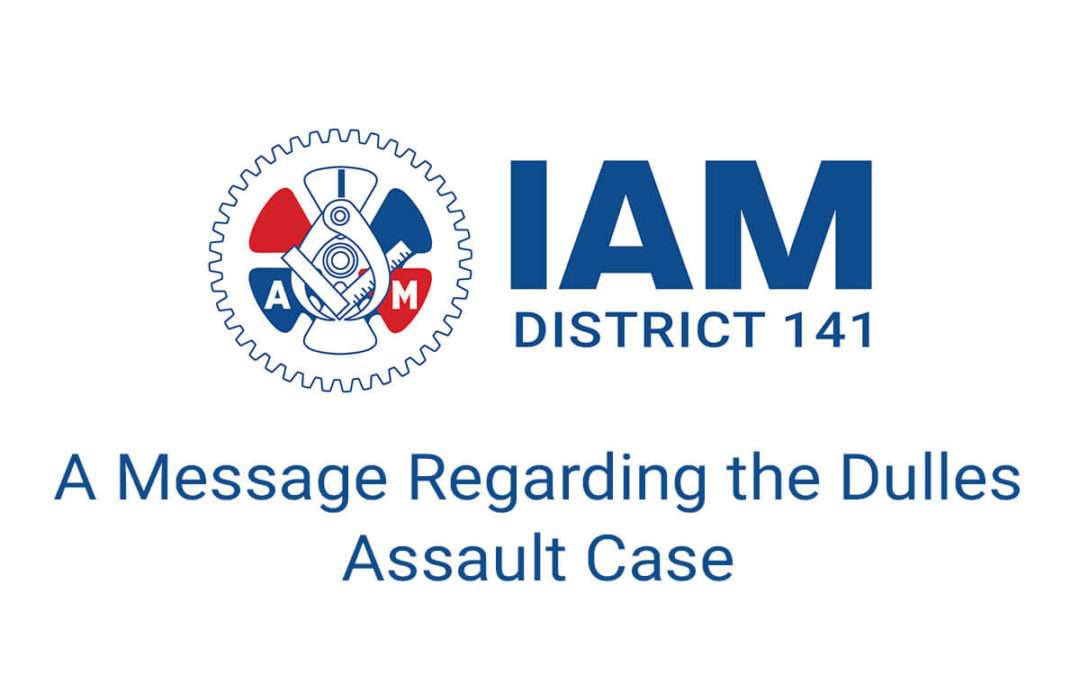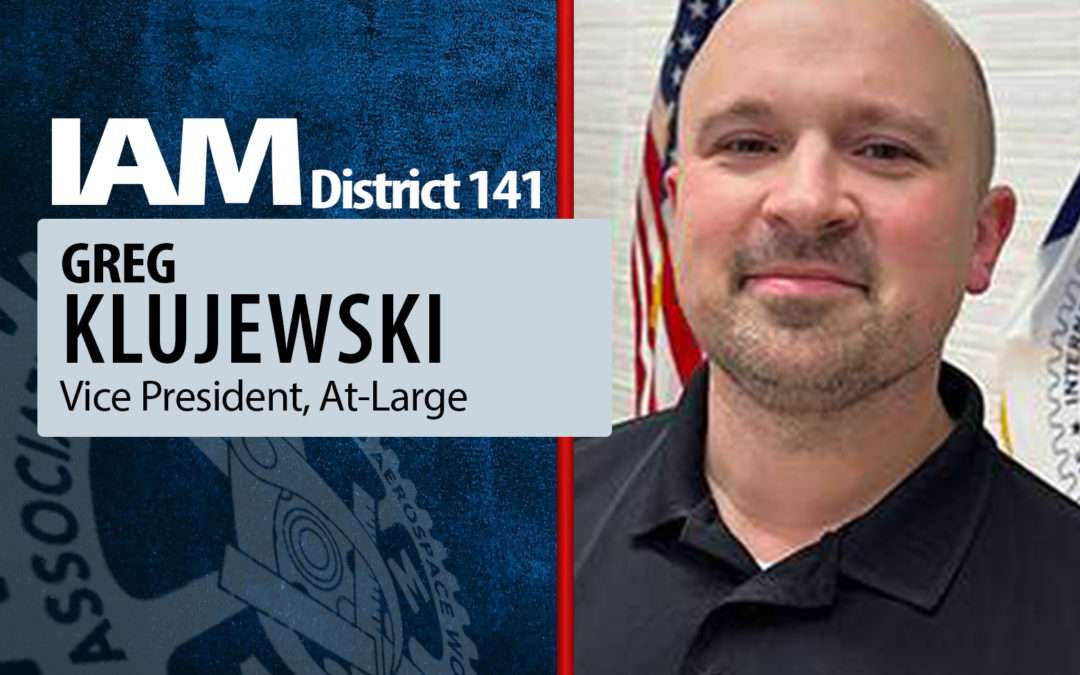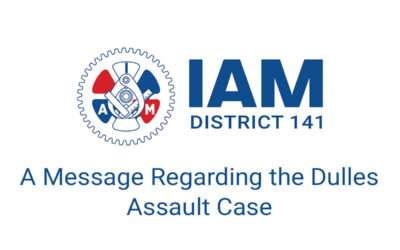
Iowa Lawmakers Seek to Bring Child Labor Back to the US
In February, labor advocates expressed their opposition to a proposed bill in Iowa that state lawmakers have introduced with support from businesses. The bill aims to relax child labor laws, allowing teenagers as young as 14 to work in jobs currently considered unsafe for children, such as mining, logging, and slaughterhouses. The proposal will also allow young teens to work in adult nightclubs serving alcohol and would allow companies to keep them on the clock until 9:00 on school nights. One union president deemed the proposal dangerous and characterized it as “just crazy.”
Horrifyingly, if a teenager is injured or dies while working under a “work-based learning program,” the business involved would be shielded from legal action brought by parents, even if the harm resulted directly from the employer’s negligence.
The proposed bill, Senate File 167, introduced by Senator Jason Schultz (R-Schleswig) in January, would expand the types of work available to 14 and 15-year-olds in the state. The legislation would allow teenagers as young as 14 to work jobs currently off-limits for safety reasons. The new rules would avoid many legal restrictions by recategorizing some child labor as “Work-Based Learning Programs” tied to a child’s regular school curriculum.
Most worryingly, the bill also shields businesses from lawsuits from parents if their children are hurt or killed on the job. Under Iowa law, young teenagers can sometimes be exempted from specific safety provisions, including those related to hazardous work, if they participate in a work-based learning program.
However, according to the Des Moines Register, the proposed legislation includes “an entirely new section” which would grant authority to the heads of the Iowa Workforce Development and the state Department of Education to make exceptions for teenagers aged 14-17 who are “participating in work-based learning or a school or employer-administered, work-related program.”
However, if an exception is granted, the teenagers would lose their worker compensation rights, leaving them solely responsible for any incidents that may occur while working. Employers are protected from lawsuits even if they are determined to be accountable for the injury due to negligence and even if the injured or killed child did nothing wrong.
In other words, Iowa employers can skirt child labor laws by expanding existing student-worker programs with help from complacent school districts. The new law will allow these programs to expand to cover jobs such as working in meatpacking plants, freezers, mechanical detasseling, and working with industrial loading equipment.
However, these programs often strip the students of workers’ compensation rights. So, if a student employed under such a program is hurt, disabled, or killed, the business cannot face civil penalties.
The bill states, “A business that accepts a secondary student in a work-based learning program shall not be subject to civil liability for any claim for bodily injury to the student or sickness or death by accident of the student arising from the business’s negligent act or omission during the student’s participation in the work-based learning program at the business or work site.” (Emphasis added.)
The bill was first introduced to the Iowa Legislature on January 30. An Iowa State Senate Subcommittee advanced and recommended passage of the bill on February 9, but it has yet to get final approval from Senators.
Generally, individuals under 18 would still be prohibited from working in specific fields, such as deep mining, logging, demolition, and slaughtering animals.
However, a business that requests and gets a waiver under a “Work-Based Learning” program could require children to perform almost any type of work.
The bill is being proposed to address an ongoing labor shortage in Iowa. It has gained the support of area businesses looking to increase staffing without paying more wages.
In the words of Charlie Wishman, the president of the Iowa Federation of Labor, AFL-CIO, quoted in the Des Moines Register, the proposed bill is “just crazy” and represents an ill-advised attempt by businesses to address Iowa’s need for more workers. He expressed concern that even with the label of a “work-based learning program,” young workers are still at risk of serious injury, stating, “A kid can still lose an arm in a work-based learning program.”
In a separate interview with Newsweek, Wishman addressed supporters of the bill, who argue that kids need work experiences more than childhood experiences, saying, “For us, this bill overall undermines the basic recognition that child labor should be limited and safe. Let kids be kids—there are plenty of job opportunities right now for kids to gain experience and learn responsibility without putting them in danger or compromising their academic success.”
As for the argument that paying more wages to attract more workers is bad business, he said, “Here are answers to this state’s workforce problems, and it’s not hiring children to do adult jobs. It’s better pay, benefits, and working conditions for adults that can make Iowa an attractive place to live and work.”
It will also ease the requirements for children to obtain driver’s licenses to allow them to drive themselves to their new jobs and expand the hours children can be required to come to work and how late they can be made to remain on the job. The new rules could force children to drive to and from work as late as 11:00 at night.
In response to concerns that inexperienced kids on the roads might create a hazard, the legislation also prohibits lawsuits against employers when children experience car crashes on the way to and from work.
Supporters of the bill say that child labor laws are ineffective anyway, and ending them can mean more money for businesses. Speaking for the Iowa Restaurant Association, Jessica Dunker told the political outlet Iowa Starting Line that adult nightclubs and bars needed children to work much later than current law allows. The new bill would enable establishments to keep kids on their shifts until 9:00 p.m. on school nights to serve alcohol to customers during peak hours. Dunker said that the restaurants in her association largely ignore child labor laws already, saying, “Nine o’clock? I’m sure they’re doing something already,” she said of requiring 14-year-old children to stay at work on school nights.
Data front the US Department of Labor backs up her assessment that many Iowa businesses illegally use child labor.
In 2022, the DOL sought charges involving more than 3,000 children who were victims of workplace exploitation, prompting nearly $3.4 million in fines.
Investigations were also launched where young teens were killed on the job. Among them is the tragic case of a 16-year-old killed on a hotel construction site after falling about 11 stories after trying to jump from a roof onto a powered lift.
U.S. Department of Labor Wage and Hour Division investigation into the incident found the teenager’s employer, Stover and Sons Contractors Inc. – a Madison construction contractor – violated two hazardous occupation orders of the child labor provisions of the Fair Labor Standards Act. The orders ban employers from allowing minors under 18 to perform roofing activities or to operate or ride on a power-driven hoisting apparatus. Further investigation determined the employer also violated child labor laws when it allowed the boy to work more than 8 hours a day and more than 40 hours per week when he was 15.
The Iowa law would legalize child labor on construction sites.
Related News
An Important Message Regarding the Dulles Assault Case
I am writing to provide an important update regarding the case of Christopher Crittenden, a former Montgomery County Fire & Rescue Service captain, who assaulted United Airlines Passenger Service Employee (PSE) Jerry Mauricio at Dulles (IAD) airport on March 13th...
United Airlines Negotiations Update for September 16, 2025
Our negotiating team and United Airlines management continued discussions for our seven collective bargaining agreements this past week in Chicago. We were joined by subcommittees for the Central Load Planners (CLP), who actively worked on their specific...
Greg Klujewski Appointed IAM District 141 Vice President At-Large
Greg Klujewski Appointed IAM District 141 Vice President At-LargeIAM141.org3 September 2025Union Leader and Educator empowering the next generation of Machinists Greg Klujewski, a longtime union activist from Local Lodge 1487, has been appointed Vice...
Stay up to date with all the latest news and information from the Machinists Union

Iowa Lawmakers Seek to Bring Child Labor Back to the US
February 23, 2023
In February, labor advocates expressed their opposition to a proposed bill in Iowa that state lawmakers have introduced with support from businesses. The bill aims to relax child labor laws, allowing teenagers as young as 14 to work in jobs currently considered unsafe for children, such as mining, logging, and slaughterhouses. The proposal will also allow young teens to work in adult nightclubs serving alcohol and would allow companies to keep them on the clock until 9:00 on school nights. One union president deemed the proposal dangerous and characterized it as “just crazy.”
Horrifyingly, if a teenager is injured or dies while working under a “work-based learning program,” the business involved would be shielded from legal action brought by parents, even if the harm resulted directly from the employer’s negligence.
The proposed bill, Senate File 167, introduced by Senator Jason Schultz (R-Schleswig) in January, would expand the types of work available to 14 and 15-year-olds in the state. The legislation would allow teenagers as young as 14 to work jobs currently off-limits for safety reasons. The new rules would avoid many legal restrictions by recategorizing some child labor as “Work-Based Learning Programs” tied to a child’s regular school curriculum.
Most worryingly, the bill also shields businesses from lawsuits from parents if their children are hurt or killed on the job. Under Iowa law, young teenagers can sometimes be exempted from specific safety provisions, including those related to hazardous work, if they participate in a work-based learning program.
However, according to the Des Moines Register, the proposed legislation includes “an entirely new section” which would grant authority to the heads of the Iowa Workforce Development and the state Department of Education to make exceptions for teenagers aged 14-17 who are “participating in work-based learning or a school or employer-administered, work-related program.”
However, if an exception is granted, the teenagers would lose their worker compensation rights, leaving them solely responsible for any incidents that may occur while working. Employers are protected from lawsuits even if they are determined to be accountable for the injury due to negligence and even if the injured or killed child did nothing wrong.
In other words, Iowa employers can skirt child labor laws by expanding existing student-worker programs with help from complacent school districts. The new law will allow these programs to expand to cover jobs such as working in meatpacking plants, freezers, mechanical detasseling, and working with industrial loading equipment.
However, these programs often strip the students of workers’ compensation rights. So, if a student employed under such a program is hurt, disabled, or killed, the business cannot face civil penalties.
The bill states, “A business that accepts a secondary student in a work-based learning program shall not be subject to civil liability for any claim for bodily injury to the student or sickness or death by accident of the student arising from the business’s negligent act or omission during the student’s participation in the work-based learning program at the business or work site.” (Emphasis added.)
The bill was first introduced to the Iowa Legislature on January 30. An Iowa State Senate Subcommittee advanced and recommended passage of the bill on February 9, but it has yet to get final approval from Senators.
Generally, individuals under 18 would still be prohibited from working in specific fields, such as deep mining, logging, demolition, and slaughtering animals.
However, a business that requests and gets a waiver under a “Work-Based Learning” program could require children to perform almost any type of work.
The bill is being proposed to address an ongoing labor shortage in Iowa. It has gained the support of area businesses looking to increase staffing without paying more wages.
In the words of Charlie Wishman, the president of the Iowa Federation of Labor, AFL-CIO, quoted in the Des Moines Register, the proposed bill is “just crazy” and represents an ill-advised attempt by businesses to address Iowa’s need for more workers. He expressed concern that even with the label of a “work-based learning program,” young workers are still at risk of serious injury, stating, “A kid can still lose an arm in a work-based learning program.”
In a separate interview with Newsweek, Wishman addressed supporters of the bill, who argue that kids need work experiences more than childhood experiences, saying, “For us, this bill overall undermines the basic recognition that child labor should be limited and safe. Let kids be kids—there are plenty of job opportunities right now for kids to gain experience and learn responsibility without putting them in danger or compromising their academic success.”
As for the argument that paying more wages to attract more workers is bad business, he said, “Here are answers to this state’s workforce problems, and it’s not hiring children to do adult jobs. It’s better pay, benefits, and working conditions for adults that can make Iowa an attractive place to live and work.”
It will also ease the requirements for children to obtain driver’s licenses to allow them to drive themselves to their new jobs and expand the hours children can be required to come to work and how late they can be made to remain on the job. The new rules could force children to drive to and from work as late as 11:00 at night.
In response to concerns that inexperienced kids on the roads might create a hazard, the legislation also prohibits lawsuits against employers when children experience car crashes on the way to and from work.
Supporters of the bill say that child labor laws are ineffective anyway, and ending them can mean more money for businesses. Speaking for the Iowa Restaurant Association, Jessica Dunker told the political outlet Iowa Starting Line that adult nightclubs and bars needed children to work much later than current law allows. The new bill would enable establishments to keep kids on their shifts until 9:00 p.m. on school nights to serve alcohol to customers during peak hours. Dunker said that the restaurants in her association largely ignore child labor laws already, saying, “Nine o’clock? I’m sure they’re doing something already,” she said of requiring 14-year-old children to stay at work on school nights.
Data front the US Department of Labor backs up her assessment that many Iowa businesses illegally use child labor.
In 2022, the DOL sought charges involving more than 3,000 children who were victims of workplace exploitation, prompting nearly $3.4 million in fines.
Investigations were also launched where young teens were killed on the job. Among them is the tragic case of a 16-year-old killed on a hotel construction site after falling about 11 stories after trying to jump from a roof onto a powered lift.
U.S. Department of Labor Wage and Hour Division investigation into the incident found the teenager’s employer, Stover and Sons Contractors Inc. – a Madison construction contractor – violated two hazardous occupation orders of the child labor provisions of the Fair Labor Standards Act. The orders ban employers from allowing minors under 18 to perform roofing activities or to operate or ride on a power-driven hoisting apparatus. Further investigation determined the employer also violated child labor laws when it allowed the boy to work more than 8 hours a day and more than 40 hours per week when he was 15.
The Iowa law would legalize child labor on construction sites.
Related

An Important Message Regarding the Dulles Assault Case
I am writing to provide an important update regarding the case of Christopher Crittenden, a former Montgomery County Fire & Rescue Service captain, who assaulted United Airlines Passenger Service Employee (PSE) Jerry Mauricio at Dulles (IAD) airport on March 13th...

United Airlines Negotiations Update for September 16, 2025
Our negotiating team and United Airlines management continued discussions for our seven collective bargaining agreements this past week in Chicago. We were joined by subcommittees for the Central Load Planners (CLP), who actively worked on their specific...

Greg Klujewski Appointed IAM District 141 Vice President At-Large
Greg Klujewski Appointed IAM District 141 Vice President At-LargeIAM141.org3 September 2025Union Leader and Educator empowering the next generation of Machinists Greg Klujewski, a longtime union activist from Local Lodge 1487, has been appointed Vice...





